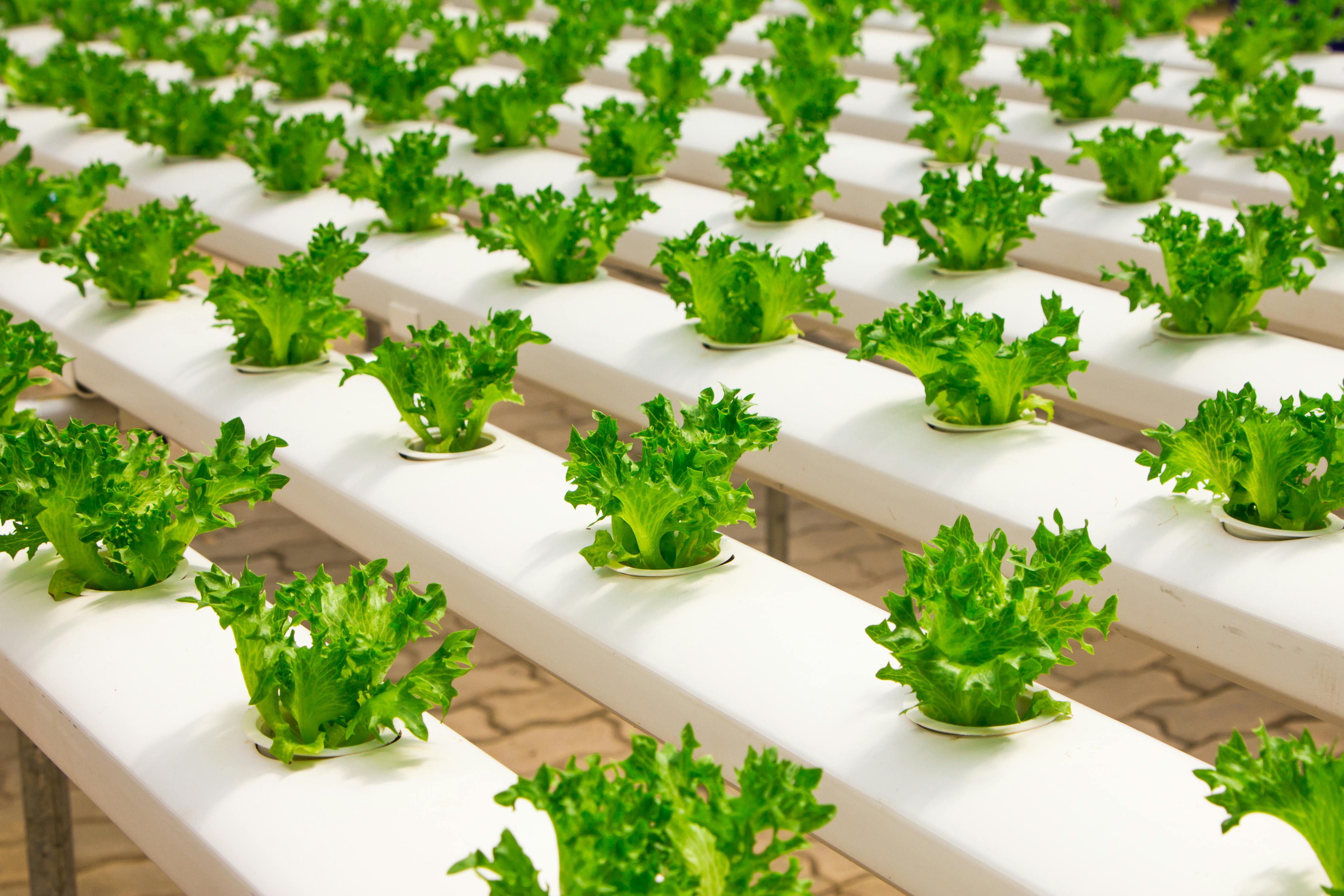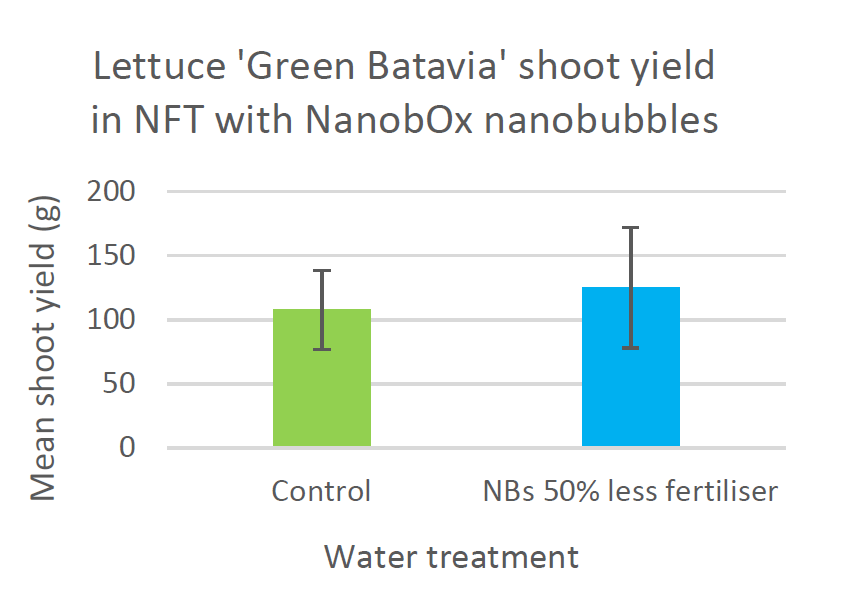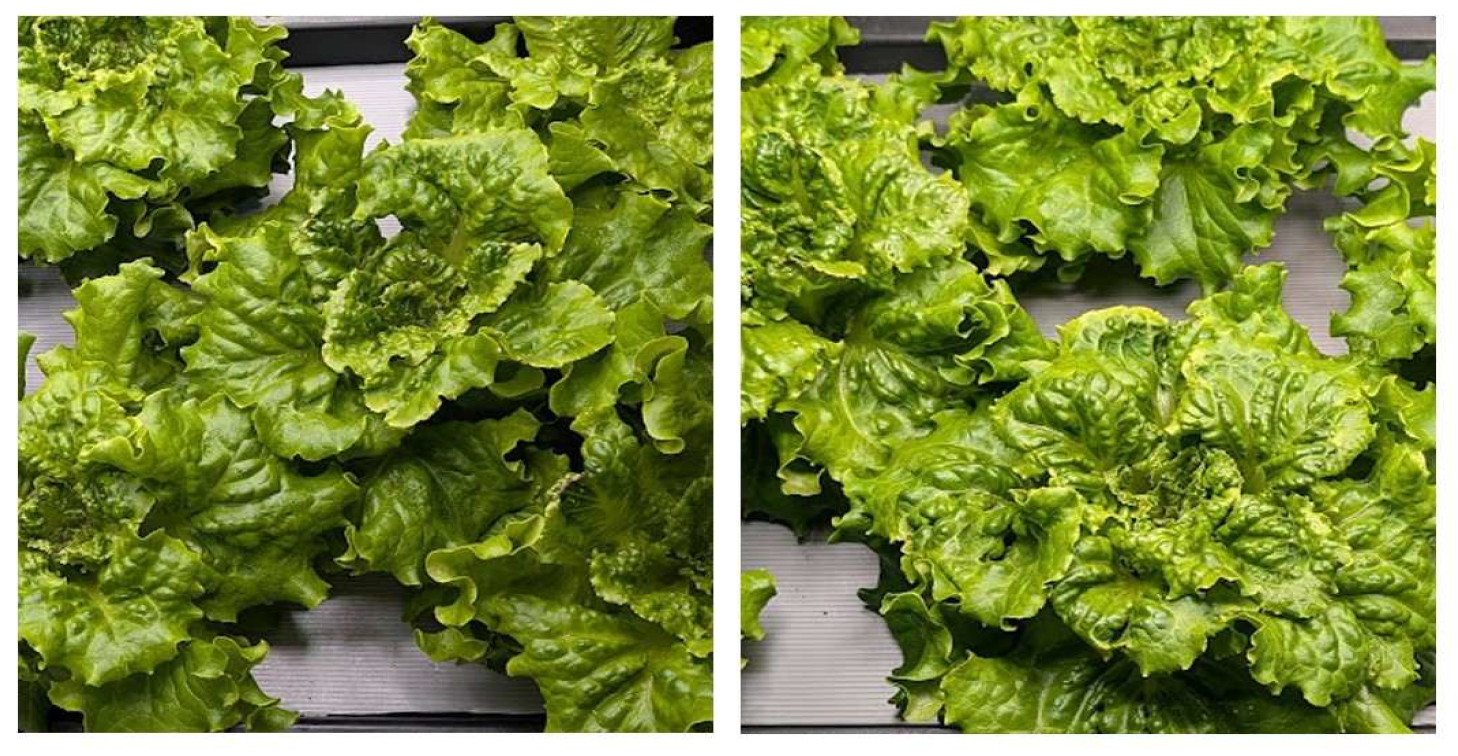Cutting Fertiliser Use by 50% in Hydroponic Lettuce With No Loss in Quality

Nanobubble Insights has completed a series of controlled trials showing that nanobOx nanobubble technology can maintain full crop performance in hydroponic lettuce while reducing fertiliser use by up to 50%. Early follow-up trials at just 25% fertiliser concentration are delivering similarly strong plant health indicators, pointing to even greater efficiency gains.
This breakthrough suggests a step-change in how indoor farms can grow more with less—lower input costs, reduced environmental impact, and greater operational resilience.
The Challenge
Hydroponics is already resource-efficient, but fertiliser inputs remain one of the largest operating costs and environmental burdens. Nanobubble Insights set out to answer a fundamental question:
Can growers maintain commercial-grade crop quality while significantly reducing nutrient strength?
The Approach
Working with a Nutrient Film Technique (NFT) system in the Microshoots Laboratory (Dundee, UK), researchers compared:
- Control: Standard commercial hydroponic fertiliser program
- nanobOx Treatment: Only 50% of the standard nutrient concentration, enriched with nanobOx nanobubbles
Throughout the growth cycle, the team monitored:
- Leaf growth and visual quality
- Root development
- Stability of the nutrient solution (pH, EC, DO)
- Overall nutrient uptake behaviour
Environmental conditions were kept within best-practice ranges for lettuce, ensuring a fair comparison.

The Results
1. Full-quality lettuce with half the fertiliser
Plants grown with nanobOx enrichment at 50% nutrients showed:
- Equivalent shoot yield to the control
- Normal leaf morphology, colour, and turgor
- No visible nutrient deficiency symptoms
- Bright, robust, healthy root systems
In short: nanobOx delivered the same outcomes with half the inputs.
2. More efficient nutrient uptake
The nutrient solution remained stable, and early indicators suggest the presence of nanobubbles enhances nutrient availability and uptake efficiency.
3. Promising early results at 25% fertiliser
A follow-up trial using just 25% of standard fertiliser shows:
- Strong growth at mid-cycle
- Healthy leaf colour and structure
- Enhanced root density, signalling active nutrient absorption
This suggests the potential for even greater optimisation.

Why It Matters
Cutting fertiliser input by 50–75% without sacrificing crop quality can unlock:
- Substantial cost savings per kg harvested
- Reduced environmental footprint (manufacturing, transport, and runoff risk)
- Greater resilience against supply chain shortages and regulatory pressure
This positions nanobOx as one of the most effective technologies available for boosting nutrient-use efficiency in controlled-environment agriculture.
What Comes Next
Nanobubble Insights is now scaling this work through:
- Replicated commercial-scale trials
- Expanded testing across multiple lettuce cultivars
- Continuous monitoring (pH, EC, ORP, temperature) via WiFi loggers
- Studies into nutrient uptake kinetics and nanobubble-driven dosing optimisation
- Detailed datasets and technical notes for partners and peer review
Work With Us
We are actively partnering with vertical farms, glasshouses, and research facilities to run on-site R&D pilots and evaluate nanobOx in real-world production.
